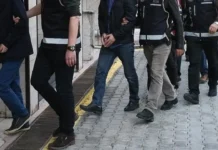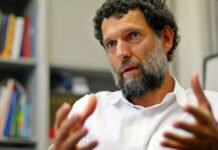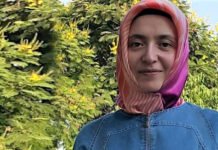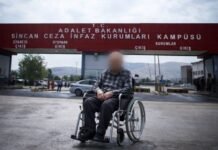Ahmed Katie, a Syrian human rights activist who went missing in November after his outspoken criticism of Turkey’s worsening treatment of refugees, is among those arrested by Turkish authorities on charges of spying for French intelligence, which made the headlines on Tuesday, Turkish Minute reported, citing Middle East Eye.
Katie’s disappearance sparked concerns from rights groups and questions about his whereabouts.
Katie, a prominent advocate for Syrian refugees in Turkey, was reportedly detained in late November. His lawyer, Halim Yılmaz, confirmed to Middle East Eye Katie’s arrest on December 12 on espionage charges.
Katie’s wife, Areej, filed a missing person report on November 30 after failing to reach him. He had last been seen leaving his İstanbul workplace after reportedly being summoned by the police. Katie had said he was pressured by Turkish authorities.
Before his detention Katie had sought asylum in France, citing rising anti-refugee sentiment in Turkey. He had been openly critical of Turkey’s treatment of refugees. Turkish officials have declined to comment on Katie’s case in response to inquiries by Middle East Eye.
The Sabah newspaper alleges Katie was recruited by the French Directorate-General for External Security (DGSE) and acted as part of a three-person intelligence cell. The report claims Katie was instructed to provide France with false information about Turkey’s refugee policies in exchange for asylum. Katie’s lawyer strongly denies these allegations.
Known for his opposition to the Syrian government, Katie has a history of arrests in Syria. He was previously imprisoned in 2005 and again in 2011 for participating in protests against President Bashar al-Assad. He sought asylum in Turkey in 2011.
Katie’s case highlights growing tensions surrounding the 3.7 million Syrian refugees in Turkey. Anti-refugee sentiment has been on the rise, with Syrians often blamed for Turkey’s economic woes. Rights groups have documented increasing instances of attacks against Syrians.
The French Embassy in Ankara declined to comment after inquiries from Middle East Eye.















